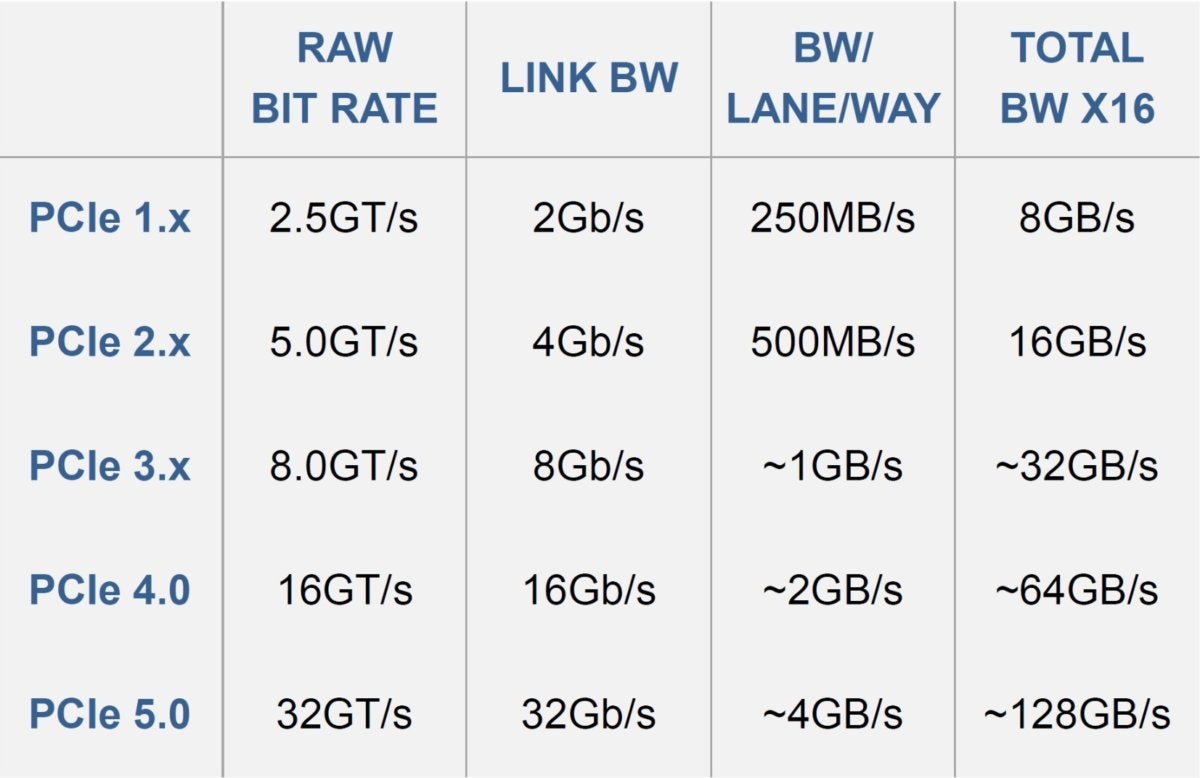PCIe 4.0 is the next evolution of the ubiquitous and general purpose PCI Express I/O specification. The interconnect performance bandwidth is double that of the PCIe 3.0 specification achieving 16GT/s and compatibility with software and mechanical interfaces is preserved. The latest PCI Express standard, PCIe 5, represents a doubling of speed over the PCIe 4.0 specifications. We’re talking about 32 Gigatransfers per second (GT/s) vs. 16GT/s, with an aggregate x16 link bandwidth of almost 128 Gigabytes per second (GBps). The delivery of the PCIe 4.0 specification to the industry is an important addition to our spec library as it delivers high performance 16GT/s data rates with flexible lane width configurations, while continuing to meet the industry’s requirements for low power. Additional functional enhancements include. KIOXIA’s XD6 Series is PCIe ® 4.0 and NVMe 1.3c specification compliant, and is available in E1.S 9.5 millimeter (mm), 15mm, and 25mm form factors. Designed for consistent performance, latency and reliability in 24x7 cloud data centers, the XD6 Series brings performance of 2x to 4x compared to PCIe 3.0 SSDs 2. Key features include.
wheresmycar
- 1x PCIe 4.0/ 3.0 x16 slot (PCI_E1) 1
- 1x PCIe 3.0 x16 slot (PCI_E3), supports x4 speed 2
- 2x PCIe 3.0 x1 slots
- The supported specification depends on installed processor.
- When installing PCIe SSD in M.2_2, PCI_E3 slot will be unavailable.
Does this mean the graphics card slot 100% supports PCIe 4.0 out of the box?
In reference to 'supported specification depends on installed processor' .... is the Ryzen 3600 fine for 4.0? (not a huge concern, as he's looking to upgrade to a 8-core Zen 3 processor later)
If 20GB VRAM variants (3080) come into existence, are these cards more likely to benefit from 4.0 scaling? The 10GB variant doesn't see much benefit as seen in one of TPUs excellent reviews https://www.techpowerup.com/review/nvidia-geforce-rtx-3080-pci-express-scaling/ hence wondering whether more VRAM means 'considerably' more PCIe bandwidth consumption?
-------------------
Not sure if the following will help but here's his current build and what he's looking to upgrade:
CURRENT:
CPU: 3600
MOBO: MSI MPG B550 GAMING PLUS
RAM: 16GB (2x8) 3600/16
GPU: older GTX 1070
PSU: older 550W unit
Displays: older 1080p 75hz panel + 1080p 60hz
IMPENDING UPGRADES:
RTX 3080 / Next Gen AMD cards (3080 20GB variant if reasonably priced and announced in the coming weeks/month)
750W PSU

8-core Zen 3 upgrade (later)
4K 144hz display